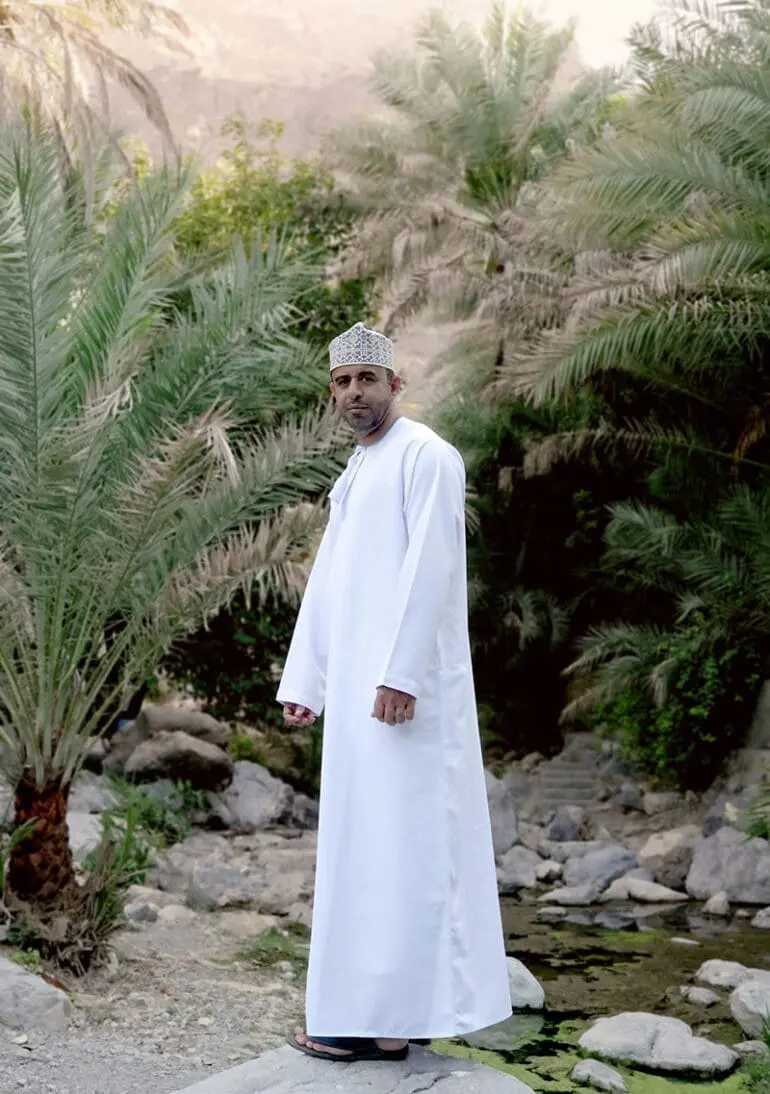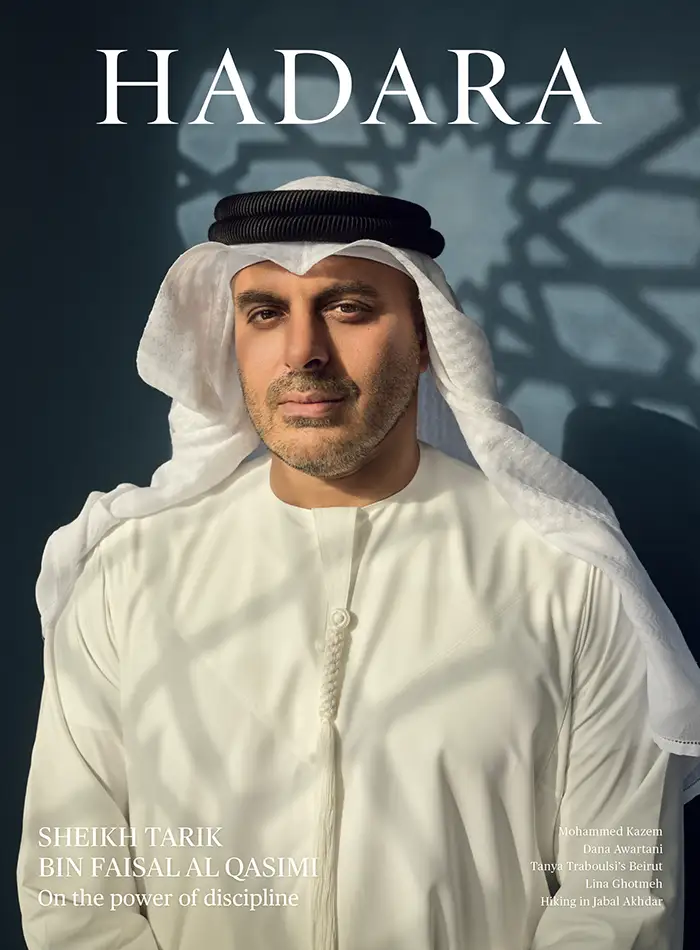Literary Currents
With The Water Diviner, Zahran Alqasmi plumbs the depths of Omani society and tradition and takes home the International Prize for Arabic Fiction.
By Marcia Lynx Qualey
In May, Zahran Alqasmi became the first Omani to win the International Prize for Arabic Fiction (IPAF), for his literary eco-thriller The Water Diviner. It follows the titular character, who is hired by villagers to locate springs deep underground. The diviner ends up trapped in one of the aflaj water channels that irrigate the village, in a fight for his life. Throughout the novel, water plays a central role in the plot, giving life and taking it away. It also plays a more philosophical role, reflecting characters back at themselves.
Alqasmi’s IPAF win is not just a personal achievement—it also represents a new era for Omani literature. It is only in recent years that Omani novels have been recognised beyond the country’s borders. In the IPAF’s first decade, only one Omani novel was longlisted: Abdulaziz Al Farsi’s Earth Weeps, Saturn Laughs. It was the only Omani novel translated to English until 2019, when Jokha Alharthi’s Celestial Bodies won the International Booker in Marilyn Booth’s translation. An Omani novel made an IPAF shortlist for the first time in 2022: Bushra Khalfan’s Dilshad. And just one year later, Alqasmi won the prize for his.
Like many Omani writers, Alqasmi began as a poet, publishing 10 collections before he brought out his first short-story collection in 2009 and his first novel in 2013. The Water Diviner was his fourth novel.
Tell us about Oman’s writing and reading community.
There is an ancient cultural tradition in Oman, but it was a poetic and historical tradition, whereas the novel is very recent, not more than 15 years old. But, as you see, there are wonderful experiments that came out in these years, and the most beautiful thing is that we—those of us who have worked on writing novels—are almost all of one generation. Thus, we do not have spiritual ancestors who came before us; instead, what we know about the novel came from abroad, both from the Arab world and from other languages, and with this, we began to experiment with writing.
Each of your novels has centred on an animating topic. Your celebrated 2017 novel Hunger for Honey, for instance, focuses on honey. This novel revolves around water. When you’re planning a book, do you start with this core idea?
At first an idea attracts me, and I like it so much that I think about it all the time. I deal with it in the same way I deal with a poem that revolves around in my head and wants to come out. It does not leave me, either day or night, and after that I start looking for important sources to furnish the location and characters. I search for books that relate to the topic, and I do interviews with the people who worked in this area and I listen to their stories. Then I start writing, but even while writing the research continues.
The characters come in unplanned succession. There is one idea, which is the central mover of the action, and the characters are built on this.
Most modern Arabic novels are set in cities. How does setting this novel in a village shape the characters and their interests?
It was a great adventure to write about the village [in The Water Diviner] and the mountains [as in Hunger for Honey]. In the village, the details and events are simpler than in the city, or so people say. But if we go back to the village, and to the lives of the people in it, and the ways those lives intersect with each other, we’ll find that it is as complex as life in the city. Of course that life differs, but people still live their lives and have their dreams, tragedies, problems, and joys, and the writer will discover a lot when he gets closer to the place.
It’s like a traveller who lands in an empty spot in the middle of the mountains or in the desert and thinks there is no life around him. But as soon as he takes a deep breath and begins to explore, he will find that there are insects, plants, and animals living there, and little by little that life will fill his senses, and he will discover that the place he thought was empty is just as full of life.
The role of social class is important in the novel. For instance, behaviour that is acceptable among those with wealth and status is not acceptable among those of lower rank. Is this social hierarchy more important, or more visible, because the novel is set in a village?
There is a complex social system in Omani villages, which is very similar to the system in cities. If we look at Omani society, we find that nearly half of its people still live in their villages and maintain the caste system that they’ve inherited. It is rather that society in the cities, in my view, is greatly influenced by the rural system, which is the basis, sometimes, even for the formation of national systems.
Photo: Kheridine Mabrouk




